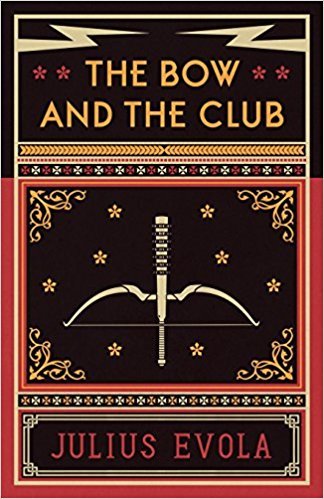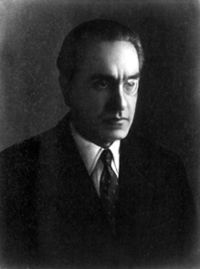
The Bow and the Club stands in many ways as the culmination of an exceptional life of deep study, meditation, and experience. This volume, first published in 1968 by Traditionalist philosopher Julius Evola, includes the author's final and most concentrated statements on some of the great themes of his career, and must be regarded both by the student of Evola and by the newcomer to his ideas as an indispensable work from the hand of one of the profoundest and most challenging thinkers of our time. In this brilliant series of dense and beautiful essays, Evola lays bare the illness of his day, and suggests a way forward for those who are willing and able to pursue it. The issues he treats are various and diverse—from East to West, from initiation to sex, from Black America to Hyperborean Rome, from 'the evasive man' to skiing—but the theme is constant: the urgent necessity to come to grips with the fatal decadence of an age, and to rise to the challenge it represents.
Author

Julius Evola (19 May 1898 – 11 June 1974), born Giulio Cesare Andrea Evola, was an Italian philosopher and esoteric scholar. Born in Rome to a family of the Sicilian landed gentry, Evola was raised a strict Catholic. Despite this, his life was characterised by 'an anti-bourgeois approach' hostile to both 'the dominant tradition of the West—Christianity and Catholicism—and to contemporary civilization—the 'modern world' of democracy and materialism'. By turns 'engineering student, artillery officer, Dadaist poet and painter, journalist, alpinist, scholar, linguist, Orientalist, and political commentator', he has been described as a 'rare example of universality in an age of specialization'. Yet behind it all lay a singular emphasis on, and pursuit of, a 'direct relationship to the Absolute'. For Evola, 'the center of all things was not man, but rather the Transcendent.' This metaphysical conviction can be seen to have determined both Evola's stance on socio-political issues, and his antipathetic attitude towards 'all professional, sentimental and family routines'. The author of many books on esoteric, political and religious topics (including The Hermetic Tradition, The Doctrine of Awakening and Eros and the Mysteries of Love), his best-known work remains Revolt Against the Modern World, a trenchant critique of modern civilisation that has been described as 'the gateway to his thought'. Since his death, also in Rome, his writings have influenced right-wing, reactionary and conservative political thought not only in his native Italy, but throughout continental Europe and, increasingly, the English-speaking world. Nevertheless, he should not be considered primarily as a political thinker, but rather as an exponent of the wider Traditionalist School that encompasses the work of such individuals as René Guénon, Titus Burckhardt and Frithjof Schuon.